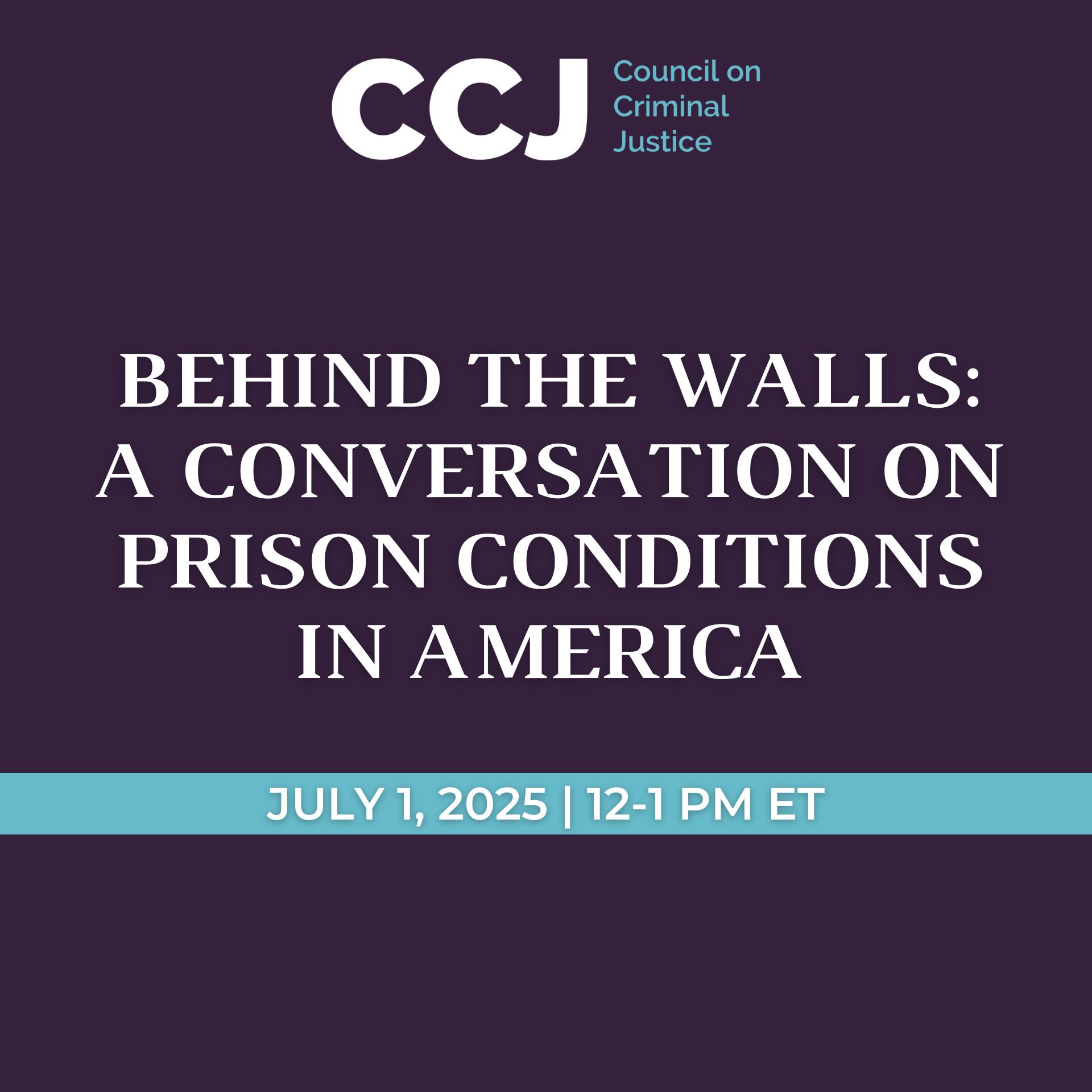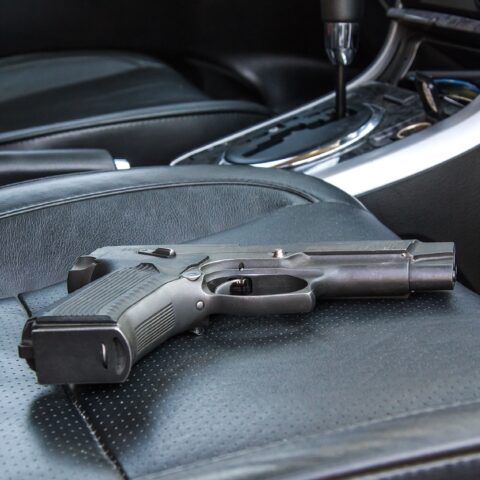Amid a Rise in Homicide, Diverse CCJ Panel Urges Leaders to Reject “Us vs. Them” Politics and Collaborate on Ten Essential Steps to Reduce Violence Now
EMBARGOED for release
12:01 a.m. ET, Jan. 12, 2022
Contact: Jenifer Warren
jwarren@counciloncj.org | 916-217-0780
WASHINGTON, D.C. – As cities across America struggle to curb increases in deadly gun violence, 16 leaders from law enforcement, public health, academia, and community violence-intervention programs today released an evidence-backed action plan to reverse the trend and promote peace in the streets.
The report from the Council on Criminal Justice (CCJ) Violent Crime Working Group outlines 10 short-term actions leaders can take to reduce community gun violence – without the need for large expenditures or new legislation. The diverse panel said success requires an approach that blends law enforcement with community-led strategies, and called on leaders to end “polarizing political debates” and demonstrate the “courage and commitment” needed to stop the bloodshed now.
“Violent crime is a deadly serious challenge, but if we set aside our political differences, roll up our sleeves, and put effective, proven strategies in place, we can save lives,” said CCJ Senior Fellow Thomas Abt, a gun violence expert who chairs the Working Group. “Too much time has been lost to unproductive, hyperpartisan arguments. The science tells us what works, and this plan highlights the strategies that will make the biggest impact now.”
The plan, Saving Lives: Ten Essential Actions Cities Can Take to Reduce Violence Now, is a playbook of sequential actions that Group members agree are most likely to make the greatest immediate impact on violence. The list is not comprehensive, and the Group emphasized that it is not a substitute for long-term strategies and investments that address poverty, inequality, racism, and other underlying causes of crime.
The Council on Criminal Justice (CCJ) is a nonpartisan think tank and invitational membership organization that advances understanding of the criminal justice policy challenges facing the nation and build consensus for solutions based on facts, evidence, and fundamental principles of justice.
The Violent Crime Working Group follows CCJ’s National Commission on COVID-19 and Criminal Justice, which issued a series of reports on crime trends throughout the height of the pandemic, and its Task Force on Policing, which assessed more than two dozen policing reforms and published a set of top priorities in May. In 2020, the CCJ Federal Priorities Task Force issued 15 recommendations for federal policy, including a proposal for a new grant program to support comprehensive violence-reduction efforts in the hardest-hit cities.
To learn more, visit counciloncj.org.
The Working Group members are:
- Ciera Bates-Chamberlin, Executive Director, LIVE FREE ILLINOIS
- Eduardo Bocanegra, Senior Director, READI Chicago
- Paul Carrillo, Director, Community Violence Initiative, Giffords Law Center
- Hernán Carvente-Martinez, Founder & CEO, Healing Ninjas Inc.
- Vaughn Crandall, Co-Director, California Partnership for Safe Communities
- Linda Harllee-Harper, Gun Violence Prevention Director, Office of the City Administrator, Washington, D.C.
- Daniel Isom, Director of Public Safety, St. Louis
- London Kite, Judge, Fourth Judicial Circuit Court, Jacksonville, FL
- Ajima Olaghere, Assistant Professor, Criminal Justice, Temple University
- Emily Owens, Professor, Department of Criminology, Law, and Society, University of California, Irvine
- Alex Piquero, Chair, Department of Sociology & Criminology, University of Miami
- Jason Potts, Captain, Vallejo (CA) Police Department
- Chico Tillmon, Senior Research Fellow, University of Chicago Crime and Education Labs
- Emada Tingirides, Deputy Chief, Los Angeles Police Department
- Daniel Webster, Bloomberg Professor of American Health, Johns Hopkins Bloomberg School of Public Health
Key recommendations include:
- Setting clear goals for violence reduction. Progress must be measured in concrete terms, and continually evaluated based on data and evidence. Annual 10% reductions in homicides and non-fatal shootings are realistic goals.
- Identifying the key people and places driving violence. Violence clusters among small sets of individuals, groups, and locations. To reduce it, cities must begin with a rigorous problem analysis based on shooting data, law enforcement intelligence, and social network mapping. Trained street outreach workers should review and verify findings.
- Engaging those key people through a strategic framework that conveys a dual message of empathy and accountability. Support and services must be offered to individuals at high risk of violence so they have something better to say “yes” to. But it must be made clear that further violence will be met with swift and certain consequences.
- Placing responsibility at the top. Every city with high rates of violent crime should create a permanent unit dedicated to violence reduction inside the mayor’s office. These units must be sustainably staffed and substantially funded to succeed long-term.
The Working Group’s guidance comes as U.S. cities wrestle with an increase in homicide and other violence. The Council documented a 30% rise in murder nationwide in 2020, and police data from large cities reveal another 7% increase in 2021. Indianapolis, Philadelphia, Portland, OR, and at least 10 other cities experienced the most homicides in their history last year.
The Council launched the Group in July to investigate what’s driving the rising violence and provide decisionmakers with concrete recommendations on policies and practices that can save lives immediately. Members brought vastly diverse professional and personal experience to the table, and while they don’t see eye to eye on everything, they forged consensus around the 10 essential actions.
Support for the Working Group initiative comes from The Harry Frank Guggenheim Foundation, the John D. and Catherine T. MacArthur Foundation, the Charles Koch Institute, The Pew Charitable Trusts and Microsoft, as well as CCJ’s general operating contributors.
About the Council on Criminal Justice
The Council on Criminal Justice (CCJ) is a nonpartisan think tank and invitational membership organization that advances understanding of the criminal justice policy challenges facing the nation and build consensus for solutions based on facts, evidence, and fundamental principles of justice.
The Violent Crime Working Group follows CCJ’s National Commission on COVID-19 and Criminal Justice, which issued a series of reports on crime trends throughout the height of the pandemic, and its Task Force on Policing, which assessed more than two dozen policing reforms and published a set of top priorities in May. In 2020, the CCJ Federal Priorities Task Force issued 15 recommendations for federal policy, including a proposal for a new grant program to support comprehensive violence-reduction efforts in the hardest-hit cities.
To learn more, visit counciloncj.org.



